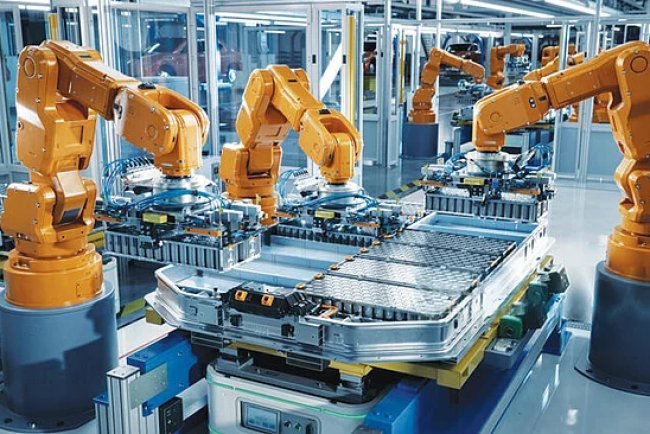Tesla’s Social Responsibility: Addressing Labor Practices and Diversity in the Workplace
Tesla’s commitment to social responsibility is a key area of focus, particularly regarding its labor practices and diversity initiatives. This article delves into the company’s efforts to improve working conditions, enhance diversity in its workforce, and build strong social governance as part of its broader corporate responsibility.

Tesla’s Social Responsibility: Addressing Labor Practices and Diversity in the Workplace
In recent years, Tesla, the pioneering electric vehicle manufacturer, has faced increasing scrutiny not only for its innovation and contributions to the automotive industry but also for its approach to social responsibility. The company’s labor practices, efforts to improve workplace diversity, and commitment to social governance have been central topics in discussions surrounding Tesla’s ethical footprint. As one of the most influential companies in the tech and automotive sectors, Tesla's social initiatives are under constant observation, with critics and supporters alike weighing in on its impact. In this article, we’ll take a closer look at how Tesla is addressing these issues.
Tesla has been criticized in the past for its labor practices, particularly in terms of worker safety, pay, and the treatment of employees at its manufacturing plants. Reports have highlighted safety concerns and complaints about long working hours at its Fremont, California, facility. Workers have alleged pressure to work overtime, and there have been claims of inadequate safety measures leading to accidents and injuries. Tesla has faced legal challenges over workplace practices, with some labor unions accusing the company of anti-union tactics. These concerns have led to broader debates about Tesla's stance on worker rights and the company's responsibility to ensure safe, fair working conditions.
In response to these criticisms, Tesla has made several changes to its labor practices. The company has worked to improve safety standards at its manufacturing facilities, investing in new equipment and processes aimed at reducing workplace injuries. Tesla has also made efforts to address wage disparities and improve compensation for workers, particularly those on the production line. While the company continues to face challenges in fully satisfying critics, it has taken steps to demonstrate its commitment to improving conditions for its employees.
Alongside labor practices, diversity and inclusion have been significant points of focus for Tesla. The company has faced scrutiny over the years for a lack of diversity in its workforce, particularly at senior management levels and within technical roles. The tech industry, in general, has struggled with diversity, and Tesla is no exception. However, in recent years, Tesla has committed to improving diversity and inclusion across the organization. This includes expanding recruitment efforts to attract more women and underrepresented minorities into engineering and leadership roles. Tesla has also introduced initiatives aimed at fostering an inclusive work environment where employees of all backgrounds feel supported and empowered to contribute to the company’s success.
Despite these efforts, Tesla's progress in enhancing diversity has been slow. Critics argue that while the company’s commitment is commendable, there is still much work to be done. For example, Tesla's executive team remains predominantly male and white, which suggests that while diversity initiatives may be in place, their impact has yet to be fully realized. Moreover, some employees have raised concerns about the company's corporate culture, citing reports of harassment and a lack of support for marginalized groups. These issues highlight the challenges Tesla faces in building a truly inclusive and diverse workplace.
Tesla’s approach to social governance also plays a significant role in shaping its overall corporate responsibility. As a leader in sustainable energy solutions, the company is committed to addressing environmental concerns, but it is equally important for Tesla to demonstrate accountability in its social practices. Tesla has implemented some corporate governance initiatives aimed at improving transparency and enhancing the company's social impact. For instance, the company has focused on increasing employee engagement and satisfaction through more open communication channels. However, the company still faces significant challenges when it comes to building a balanced and inclusive culture that can reflect its values of innovation and progress.
In conclusion, Tesla is actively addressing labor practices and diversity challenges, but the company has a long way to go in fully establishing itself as a leader in social responsibility. While the company has made notable strides in improving working conditions and fostering a more inclusive workforce, it must continue to refine its approach to labor relations and diversity efforts. Tesla’s future will likely depend on its ability to maintain its reputation as an innovative leader in sustainability while also fulfilling its obligations to workers, promoting diversity, and upholding strong governance standards. The company’s social responsibility initiatives remain a key area to watch as Tesla continues to evolve and expand its global presence.
Source: Information adapted from various publicly available resources and news reports on Tesla's social responsibility initiatives.
What's Your Reaction?

















